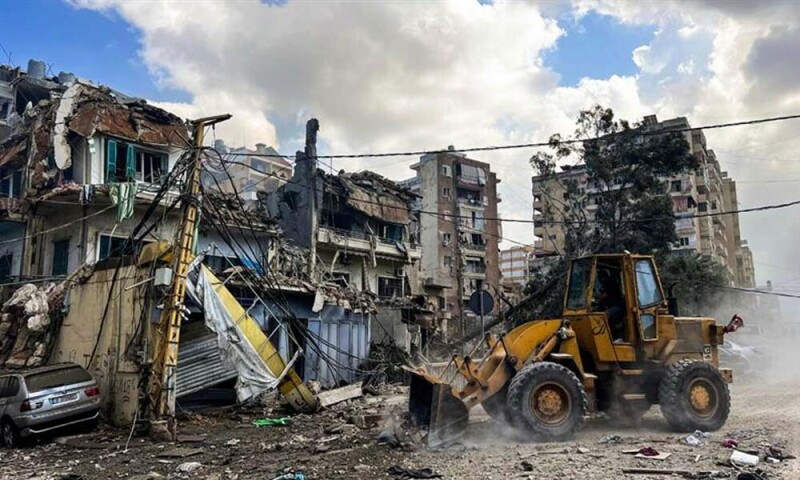BEIRUT: More than a year of clashes that recently escalated into war have cost Lebanon more than $5 billion in economic losses, with actual structural damage amounting to billions more, the World Bank said on Thursday.
Since September 23, Israel has ramped up its air campaign in Lebanon, later sending in ground troops following almost a year of limited, cross-border exchanges initiated by Hezbollah over the Gaza war.
Lebanon’s health ministry said at least three people were killed on Thursday in an Israeli strike on the main eastern city of Baalbek.
Intensified strikes blamed on Israel have also hit Hezbollah ally Syria, where the defence ministry said 15 people were killed Thursday.
In its Lebanon report, the World Bank provided estimates for damage between October 8, 2023 and October 27, 2024, saying “the conflict has caused $5.1 billion in economic losses”, with damage to physical structures amounting to “at least $3.4 billion” on top of that.
World Bank looking to free up emergency funds for Lebanon
The losses are “largely concentrated in the commerce and tourism and hospitality sectors… as well as in the agriculture sector”, the report said.
The conflict has also “damaged an estimated 99,209 housing units” – mainly in Lebanon’s war-torn south near the border with Israel – totalling $2.8 billion in damages, it said.
Eighty-one percent of damaged and destroyed houses are located in the Tyre, Nabatiyeh, Saida, Bint Jbeil and Marjayoun districts.
Mass exodus
“The final cost of damage and losses for Lebanon associated with the conflict is expected to significantly exceed” the combined $8.5 billion estimated in the report, the bank said.
The World Bank estimates that the conflict cut Lebanon’s real GDP growth for 2024 by at least 6.6 percent.
Lebanon had already been reeling since 2019 from an intense economic crisis that pushed most of the population into poverty.
“This compounds five years of sustained sharp economic contraction in Lebanon that has exceeded 34 percent of real GDP, losing the equivalent of 15 years of economic growth,” the World Bank said.
This week, Israel ramped up its raids on south Beirut, hitting the Hezbollah bastion with three waves of air strikes on Thursday alone.
The strikes were preceded by Israeli evacuation warnings telling residents to leave immediately.
Repeated strikes have led to a mass exodus of civilians from the once densely packed residential area, although some return during the day to check on their homes and businesses.
More than 3,380 people have been killed in Lebanon since the clashes began last year, according to the health ministry, the majority of them since late September.
Israeli strikes on Syria, meanwhile, have also intensified recently, including in areas near the border with Lebanon, where Israel says it is targeting sites belonging to Iran-backed Hezbollah.
Thursday’s strikes hit residential buildings on the outskirts of the capital, as well as in the Mazzeh neighbourhood, home to embassies, United Nations offices and security headquarters.
Israeli authorities rarely comment on individual strikes in Syria but have repeatedly said they will not allow arch-enemy Iran to expand its presence there.
Read the full story at the Business Recorder - Latest News website.



